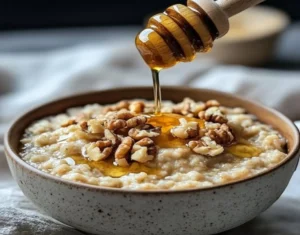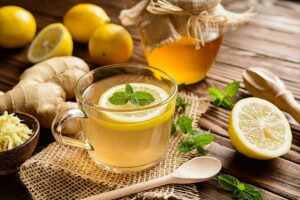
Sidr Honey Straws Specialist Singapore
Which Yemeni Honey Type Is the True Liquid Gold?
Yemen isn’t just famous for its stunning landscapes and ancient culture—it’s also home to some of the world’s most treasured honeys. Yemeni honey carries a rich heritage, deeply woven into local traditions and the economy. If you’ve ever wondered which honey truly deserves the title of “liquid gold,” you’re in for a sweet discovery.
Honey in Yemen isn’t just a kitchen staple; it’s a symbol of purity and nature’s finest work. But with so many types of Yemeni honey out there, which one really stands out? Let’s dive in and explore the diverse world of Yemeni honey and uncover the golden truth.
Overview of Yemeni Honey Types
Yemen’s unique geography, blessed with diverse flora, creates the perfect environment for producing various types of honey. From the mountain blossoms to desert wildflowers, each variety tells a different story of nature’s bounty.
Generally, Yemeni honey is celebrated for its purity, exquisite flavor, and impressive medicinal benefits. Locals prize it not only as a delicious natural sweetener but also for its antibacterial and antioxidant properties.
Major Types of Yemeni Honey
Sidr Honey
Undoubtedly, the crown jewel of Yemeni honey is Sidr honey. Sourced from the nectar of the Yemeni Sidr tree, this honey boasts a rich, deep flavor that’s both sweet and complex. Sidr honey’s unique qualities, like its thick texture and golden amber color—make it instantly recognizable.
What sets Sidr honey apart isn’t just taste. It’s renowned for its health benefits, including strong antibacterial and anti-inflammatory effects. Harvested carefully by local beekeepers in limited regions, Sidr honey truly earns its “liquid gold” nickname.
Manuka-like Honey (from Wildflowers and Herbs)
You might have heard of New Zealand’s famous Manuka honey, but Yemen produces a similar type from wildflowers and herbs. This honey carries a robust flavor and powerful health perks, making it a prized choice for those seeking natural remedies.
Acacia Honey
Light in color with a mild taste, Acacia honey Yemen is a gentle option often used for tea or baking. Its delicate floral notes make it popular among those who prefer subtle sweetness.
Palm Honey
Harvested from date palm sap, Palm honey from Yemen is darker and richer in flavor. This honey is often thicker and offers a unique taste profile that differs greatly from flower-based honeys.
Cotton Flower Honey
Sourced from cotton blossoms, this honey carries a subtle sweetness with floral hints. Cotton flower honey from Yemen is appreciated for its smooth texture and versatility in recipes.
Black Seed Honey
This honey stands out for its medicinal properties. Known as a natural immune booster, Black seed honey from Yemen combines the healing powers of black seed with pure honey’s goodness.
|
Honey Type |
Source |
Color & Texture |
Flavor Profile |
Notable Benefits/Uses |
|
Sidr Honey |
Nectar of Yemeni Sidr tree | Thick texture, golden amber | Rich, deep, sweet & complex | Strong antibacterial & anti-inflammatory effects; rare and highly prized |
|
Manuka-like Honey |
Wildflowers and herbs |
Varies, robust texture |
Robust flavor |
Powerful health benefits, natural remedies |
| Acacia Honey |
Acacia flowers |
Light color, mild texture |
Mild, delicate floral notes |
Gentle sweetness, ideal for tea and baking |
|
Palm Honey |
Date palm sap | Darker, thicker | Rich, unique taste |
Distinct from flower-based honeys, richer flavor |
|
Cotton Flower Honey |
Cotton blossoms |
Smooth texture, light color |
Subtle sweetness, floral hints |
Versatile in recipes |
|
Black Seed Honey |
Black seed combined with honey | Varies | Medicinal, natural immune booster |
Known for medicinal and immune-boosting properties |
Why Sidr Honey Is Called the True Liquid Gold
You’re probably wondering, “Why does Sidr honey get all this hype?” Well, here’s the scoop:
- Rarity and Limited Harvest: Sidr honey is harvested from a rare tree, found only in specific Yemeni regions. This makes its supply very limited, driving up its value.
- Superior Purity: Unlike many honeys on the market, authentic Sidr honey is free from adulteration. It’s as pure as honey can get.
- Health Benefits: Packed with antioxidants, antibacterial agents, and anti-inflammatory compounds, Sidr honey is a powerhouse of wellness.
- Cultural Significance: Yemeni culture reveres Sidr honey not just as food, but as medicine and a spiritual symbol.
- Premium Price and Global Demand: Its unmatched quality means Sidr honey commands a premium price and enjoys global demand, especially among honey connoisseurs.
How to Identify Genuine Sidr Honey
Want to make sure you’re getting the real deal? Here are some tips:
- Color and Texture: Authentic Sidr honey usually has a deep golden amber color and a thick, creamy texture.
- Taste: It offers a rich, complex sweetness with a hint of caramel and floral undertones.
- Source: Buy from trusted suppliers who guarantee pure Yemeni Sidr honey. Certifications or lab tests add credibility.
- Packaging: Authentic sellers, like Little Honey in Singapore, provide transparent info about origin and harvesting methods.
Conclusion
To wrap things up, Yemen produces several exquisite Yemeni Honey varieties, each with unique flavors and benefits. From mild Acacia honey Yemen to medicinal Black seed honey Yemen, the options are plenty.
But when it comes to the true “liquid gold,” Sidr honey reigns supreme. Its rarity, purity, health benefits, and cultural heritage make it a treasure worth seeking. For those in Singapore, exploring authentic Sidr honey is not just a treat for the taste buds—it’s a journey into Yemen’s rich natural legacy.
So, next time you’re looking to sweeten your day, why not reach for a jar of genuine Sidr honey? Trust us, your taste buds and your health will thank you.
FAQ
Q1: What is the rarest type of Yemeni honey?
Sidr honey is considered the rarest and most valuable type of Yemeni honey.
Q2: How can I tell if Sidr honey is authentic?
Genuine Sidr honey has a thick, golden amber color, a rich floral taste, and should be purchased from trusted sources.
Q3: What are the health benefits of Yemeni honey?
Yemeni honey, especially Sidr honey, offers antibacterial, antioxidant, and anti-inflammatory benefits.
Share this post :
Categories
Latest Post


Boost Your Overnight Oats with Ajwa & Sidr Honey

Boost Your Health Naturally: Honey Superfoods for Immunity





